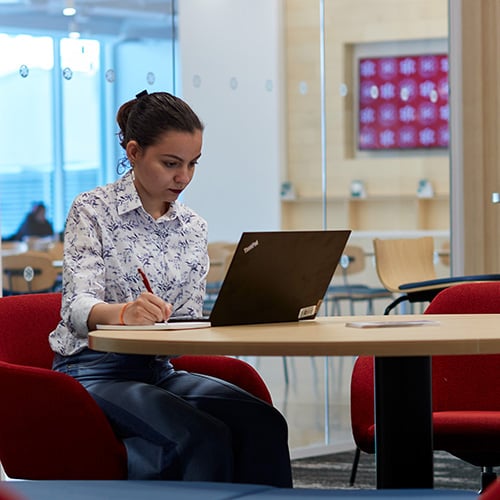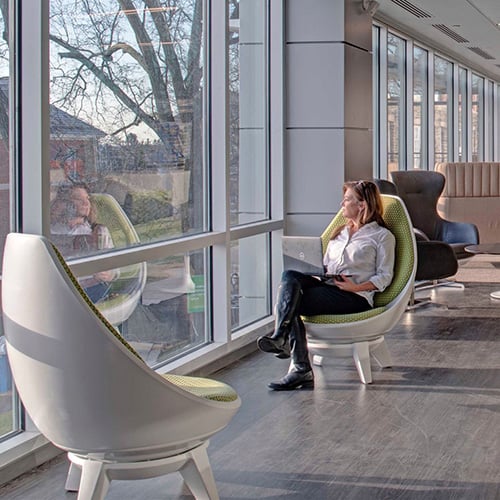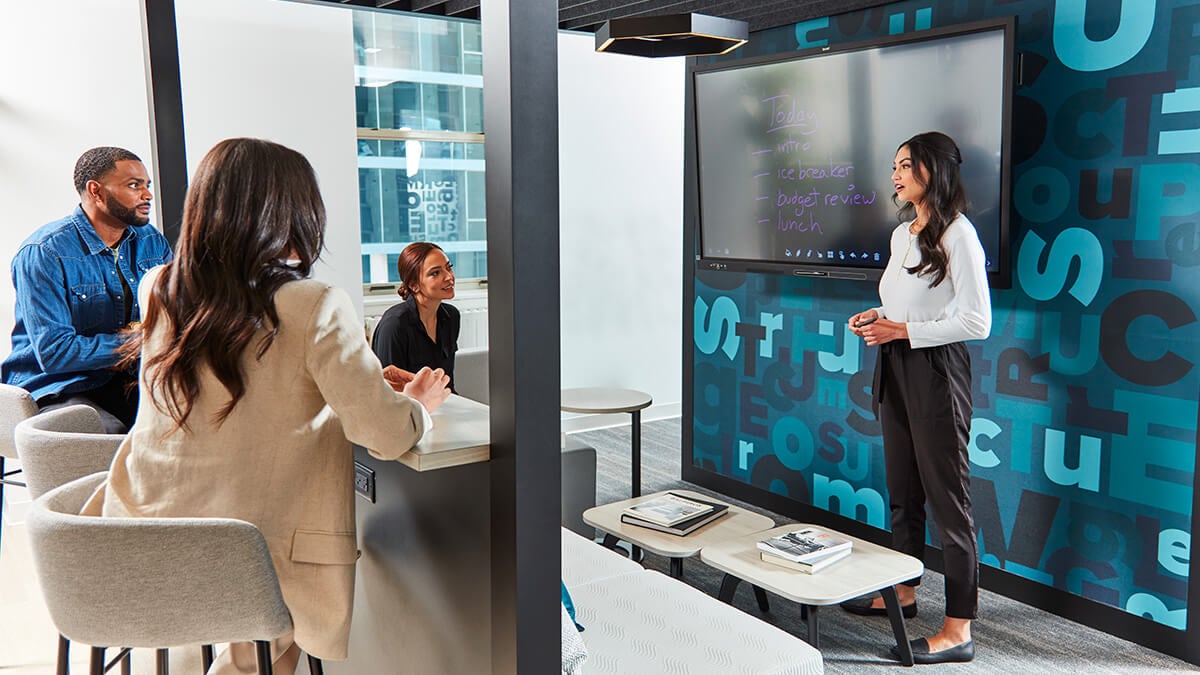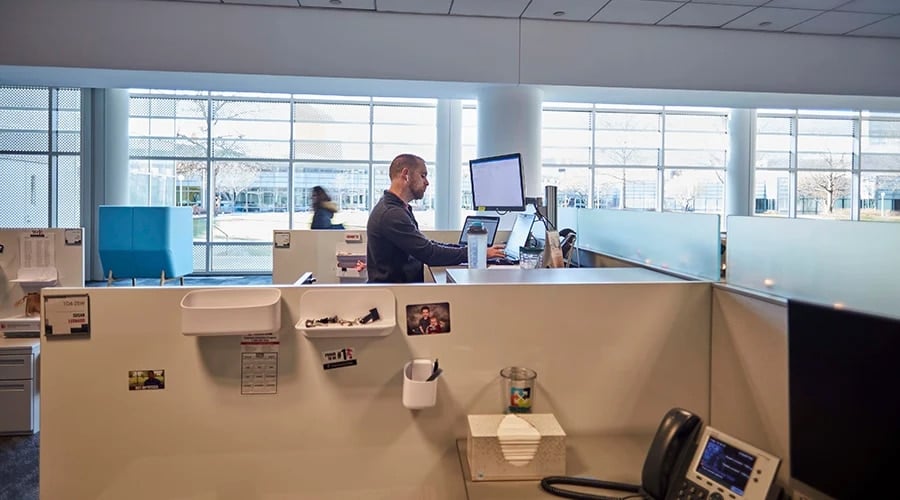How Personality Types Can Influence Hybrid Work Policies

We recently partnered with Myers-Briggs to find out if personality types can help employers navigate return-to-office strategies and create welcoming hybrid workplaces for all. Here’s what we learned.
Across the country, employers and employees are deciding what the future of work will look like. Not surprisingly, there are some challenges to overcome.
Research shows that managers generally believe working in the office is not only critical to productivity, but that it yields important benefits, like better opportunities for mentorship and training. On the other hand, many employees tend to believe they’re more productive when they work remotely.
Those differences may help explain why some executives are beginning to require or entice workers to come back to the office with snacks, social events, and even bonuses. Meanwhile, some employees are hanging onto their remote work privileges for dear life.
That growing tension made us wonder whether certain factors, like personality type, could help business leaders understand who is eager to head back to the office, who isn’t, and what we can do to embrace a hybrid workplace and create welcoming, productive workplaces for all.
Through our team at KI Europe, we partnered with the Myers-Briggs Company to find out. Following are highlights from the research findings, which are detailed in our new white paper linked below.
The Building Blocks of Myers-Briggs Personality Types
First, we determined the personality types of more than 440 survey respondents. To do so, we used the gold-standard Myers-Briggs Type Indicator assessment, which describes an individual’s preferences based on whether they:
- Focus their energy on the outside world (Extraversion) or their inner world of thoughts and feelings (Introversion).
- Trust and prefer to use practical information gleaned from their senses (Sensing) or information based more heavily on connections and the big picture (Intuition).
- Make decisions based on objective logic (Thinking) or based on their values and how they will impact others (Feeling).
- Prefer to live their life in an ordered, structured, or planned way (Judging) or in a spontaneous, emergent, and open way (Perceiving).
Any person can have different combinations of preferences for these four spectrums, which combine to identify one of 16 personality types.
From Personality Traits to Workplace Preferences
We then asked participants about their work preferences, work environments, and job satisfaction and analyzed the resulting data for themes and insights.
Four critical insights emerged:

1. Extroverts and introverts both enjoy working from home.
Although extroverts say they enjoy working in an environment with lots of people, they don’t necessarily prefer it all the time. Both extroverts and introverts agreed that they enjoy working from home and appreciate the peace of quiet of doing so. Unsurprisingly, introverts were more emphatic in their enthusiasm for working from home.
Interestingly, both extroverts and introverts who currently work in a hybrid model said they would like to work from home more often.
2. “Sensing” employees in a hybrid model spend more time in the office, on average, than “intuitive” hybrid employees.
This finding seems to suggest that individuals with sensing personality types might enjoy being in the office more than people with intuitive personality types. It also indicates that a forced return-to-office policy could very well push intuitive workers to look for other employment opportunities.

3. Among hybrid and remote employees, “feeling” employees are more likely to be dissatisfied or very dissatisfied with their home working environment than “thinking” employees.
Although thinking personality types are more likely to prefer neat and organized spaces, we suspect that this finding may be connected to another survey result. We found that workers with feeling personality types are less likely to have a dedicated home office or workroom than their counterparts with thinking personality types.
4. “Perceiving” employees are particularly concerned about whether return-to-office requirements would reduce the amount of flexibility they’d have.
Preferring to keep an open schedule and work at their own pace, workers with perceiving personality types are also more likely to be looking for a new job than those with judging personality types. Perhaps that’s simply related to the spontaneous, open nature of a perceiving personality type, but there’s a possibility it’s also tied to concerns over returning to the office full-time.
Our survey results indicate that the MBTI can prove a useful tool to help leaders understand their employees’ work preferences and make informed decisions about their return-to-office and hybrid work strategies. These insights may be particularly useful in workplaces that already use the Myers-Briggs test in hiring and training practices, such as 88 of the Fortune 100 companies.
Important Questions for Employers
We discovered two other significant takeaways, regardless of personality type:
- Employees who are entirely office-based are the most likely to want to leave their jobs.
- A mismatch between an employee’s preferences for remote work and what their existing job demands is one of the strongest predictors of whether an employee intends to leave their job.
Those findings have real and immediate implications for every employer. Finding the balance between remote and in-person work hasn’t proven easy, even for the most experienced executives. Leaders must evaluate their existing workplace policies, the preferences of their workforce, and consider what changes, if any, they find valuable to make.
Inclusive & Successful Work Environments
As the landscape of work continues to evolve, understanding the preferences and needs of employees based on their personality types is crucial for creating inclusive and successful hybrid work environments. By leveraging insights from the Myers-Briggs assessment and considering the broader implications for workplace policies, leaders can make informed decisions that support their workforce and drive organizational success in the future of work.
In next week's blog post, we’ll explore how these research findings can inform critical workplace policies and interior design choices that support a happier, healthier workforce. Stay tuned!
For a deeper dive into our research with the Myers-Briggs Company, download our new white paper below.
Related Content
 Blog
Blog
Tangible office perks may no longer be at the top of the list of must-haves for most employees, especially the youngest generation. Here's how to respond.
 Blog
Blog
Discover design tips for reinventing work environments as employees return to work that support different work styles.
 Blog
Blog
Learn how the collaborative culture at Wavetronix has connected with the local community and shaped their new corporate home in Springville, Utah.
Subscribe
Stay up to date with the latest trends and more.







